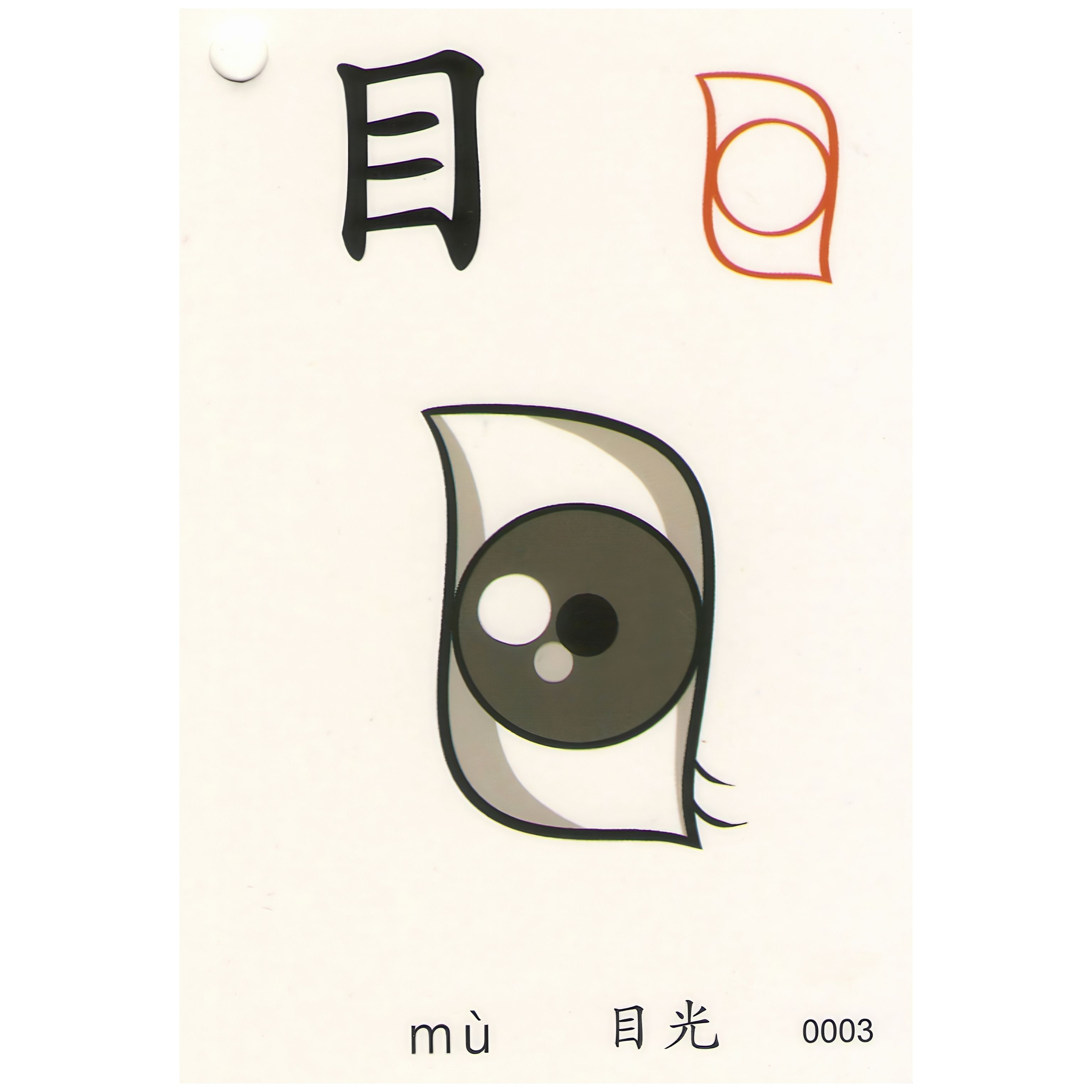
目
คำอธิบาย
The character "目- Mù " is a pictographic character depicting an eye.
It has multiple meanings and usages, Today we are gonna take a look at some of the main points:
Frist, As an Independent Word, It refers to
1.眼睛- Yǎn jing - eyes, The organ of vision.
2.看 - Kàn - look, Derived from the function of the eye, it means to observe with the eyes.
Example:
他目不转睛地看着比赛。- Tā mù bù zhuǎn jīng de kàn zhe bǐ sài 。
-He watched the game without blinking.
目睹了整个过程 - Mù dǔ le zhěng gè guò chéng
- Witnessed the whole event
Compound words
1.目光 - Mù guāng - Vision: A person's gaze or attention.
Example:
他的目光炯炯有神。- Tā de mù guāng jiǒng jiǒng yǒu shén 。
- His eyes are piercing.
2.目的-Mù dì - Purpose: Goal, intention.
Example:
他的目的是通过考试。- Tā de mù dì shì tōng guò kǎo shì 。
- His purpose is to pass the exam.
3.题目-Tí mù - Title/ question
Example:
作文的题目- Zuò wén de tí mù - The essay title
4.目录 - Table of contents
Example:
这本书的目录- Zhè běn shū de mù lù
-The book's table of contents
5.项目- Xiàng mù - Item/ project
Example:
工作中的重要项目。-Gōng zuò zhōng de zhòng yào xiàng mù 。
-Important projects at work
Idioms and Fixed Phrases
"目不暇接 - Mù bù xiá jiē" : Describes an overwhelming number of things to see.
The Chinese idiom "目不暇接- Mù bù xiá jiē" translates to "too much to see" in English. It is often used to describe a situation where there are so many things to see that one's eyes don't have enough time to rest on any single thing.
In a more general sense, it can be used to express the idea of being overwhelmed by numerous sights or activities happening all at once.
Another common translation is "a feast for the eyes," emphasizing the abundance and variety of visually appealing elements.
ช่องพอดคาสต์
每日一字
ผู้แต่ง
Qunqun Wangผู้สอนมืออาชีพทั้งหมดทุกตอน
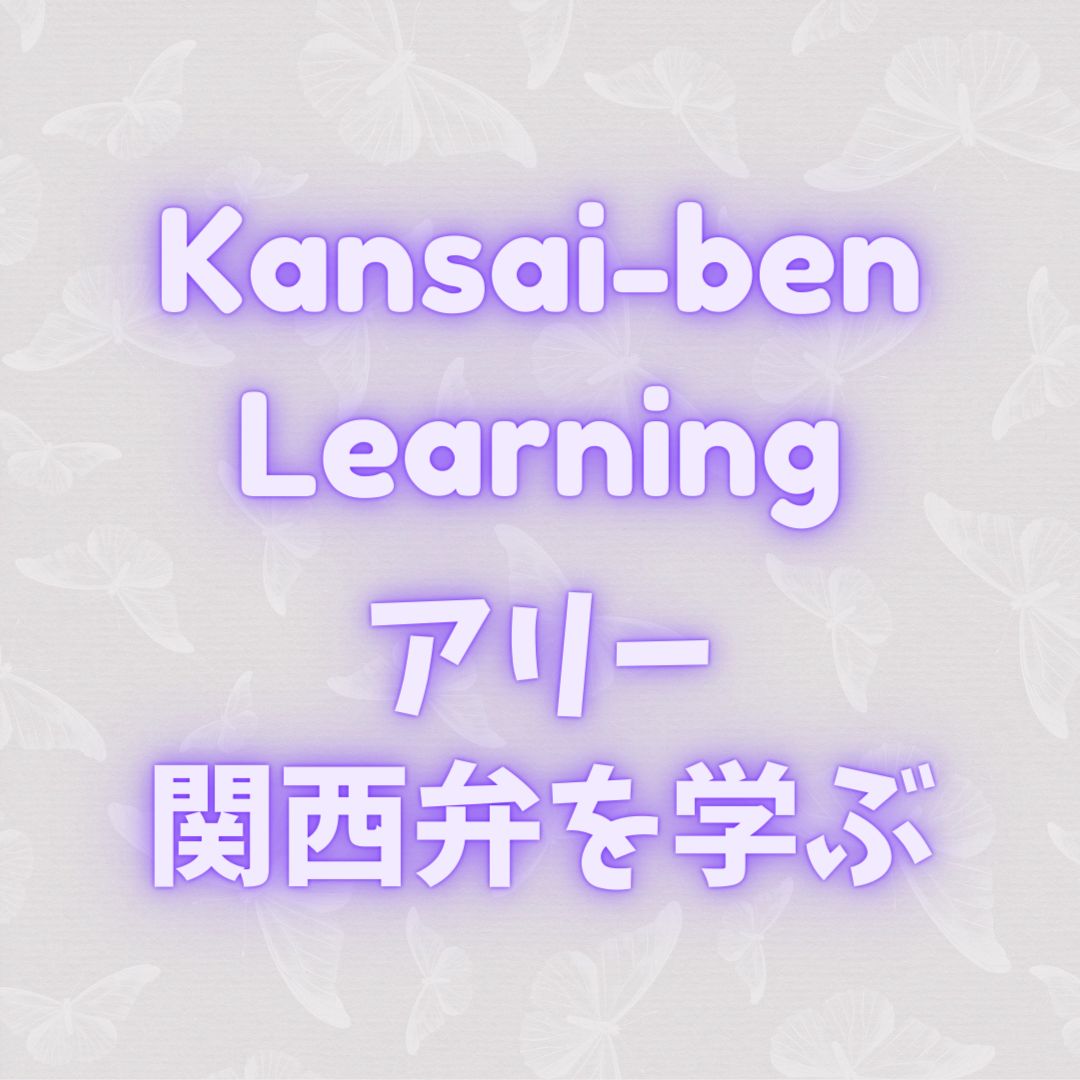
【 🇺🇸🇯🇵】《#1-3🐥Is the Kansai Dialect special?》Bilingual ENG&JP Chit-Chat: Aly Learns Kansai Dialect
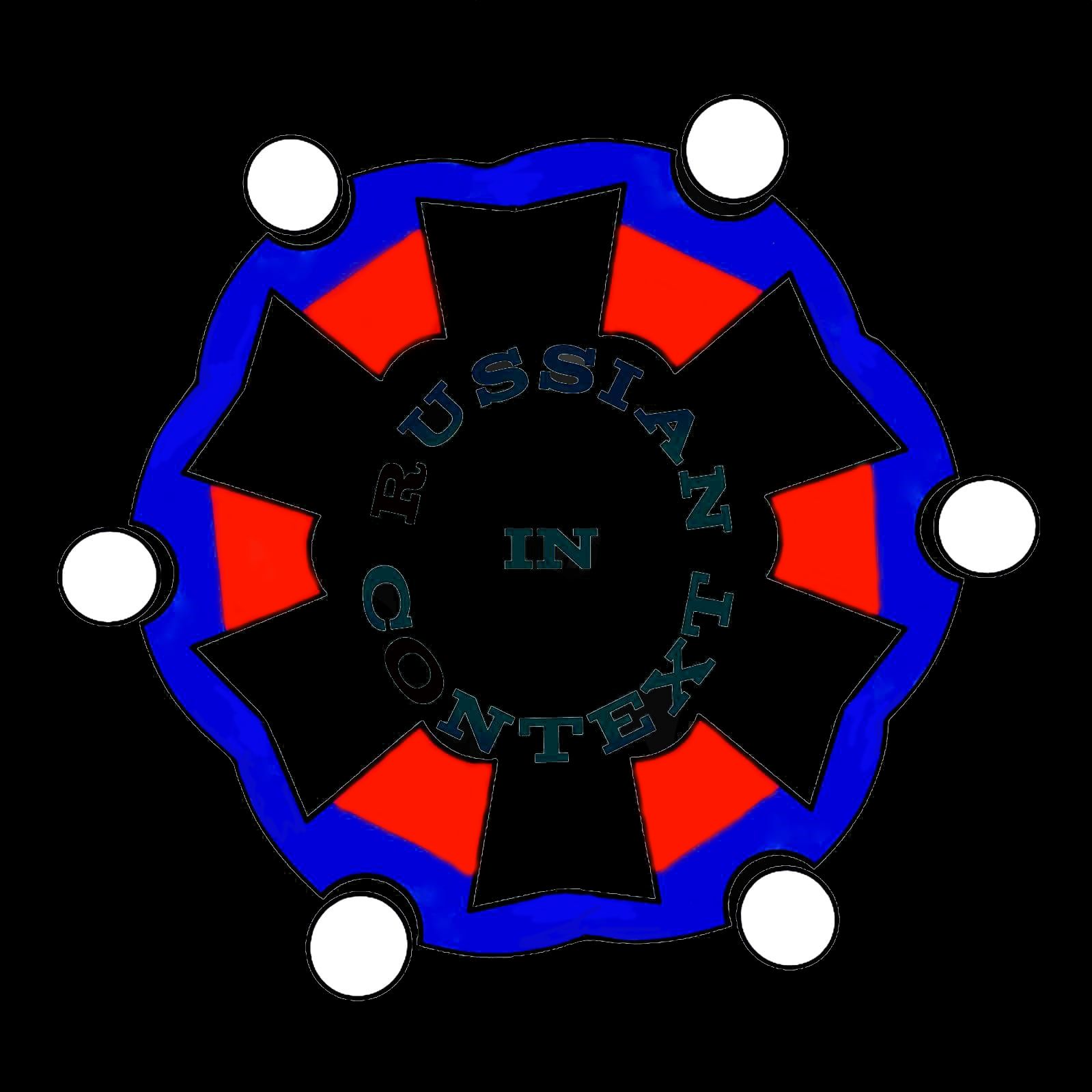
Holidays (Greetings in russian) / Праздники - Kоротко и ясно!
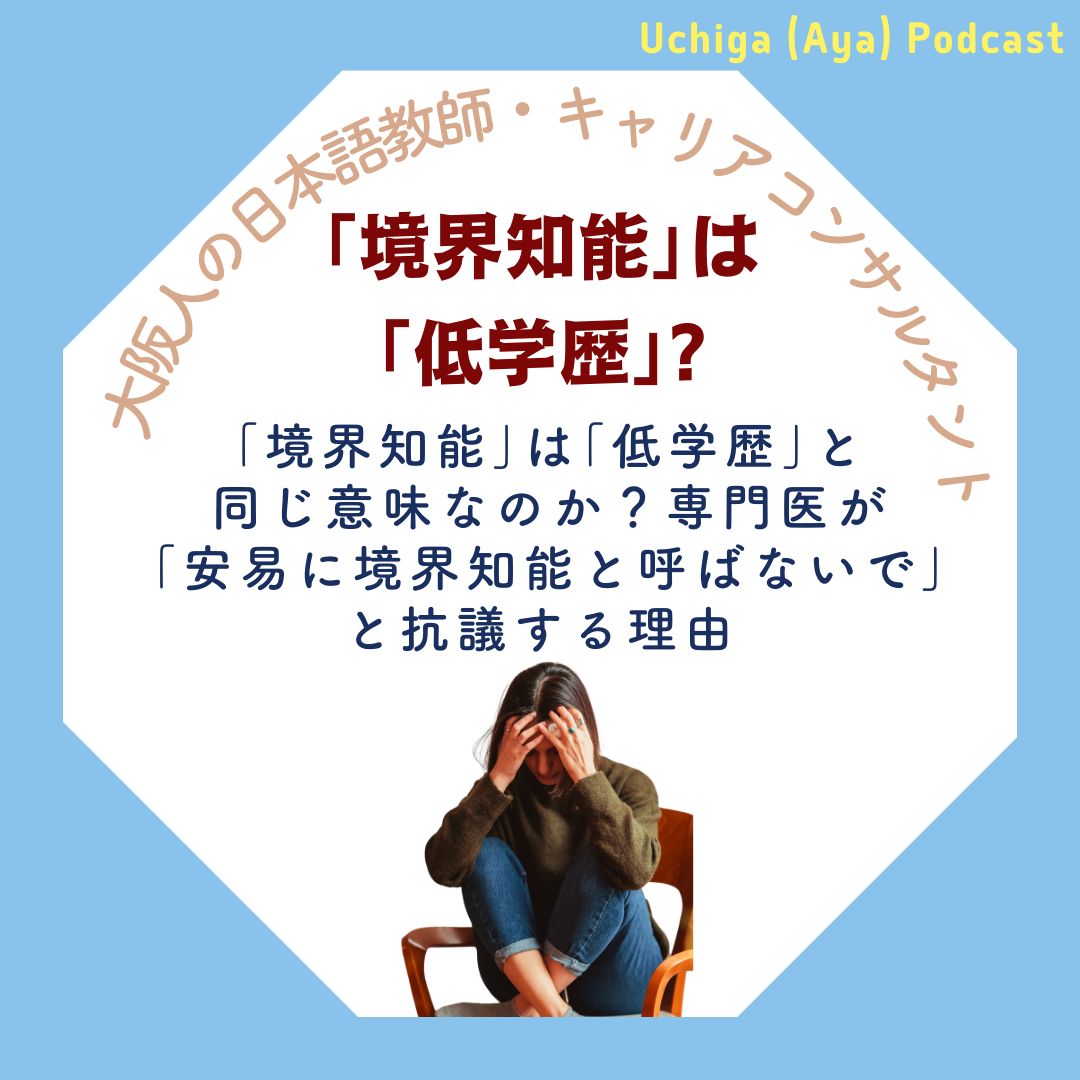
「境界知能」は「低学歴」?専門医が「安易に境界知能と呼ばないで」と抗議するのはなぜか?
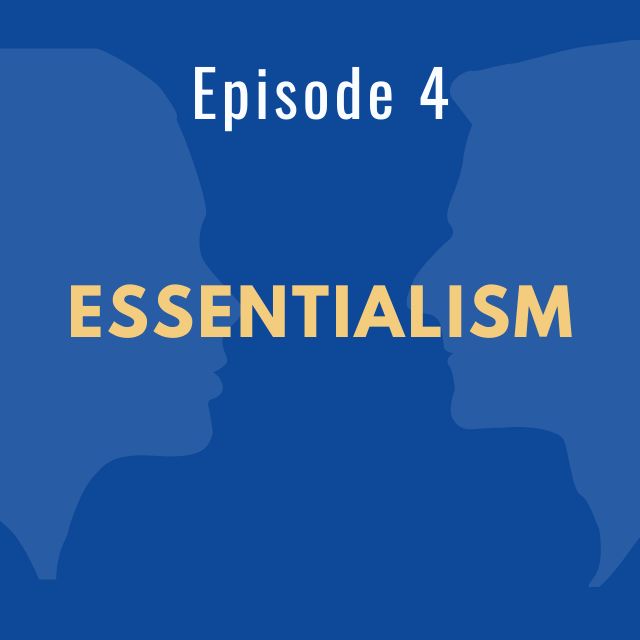
Essentialism
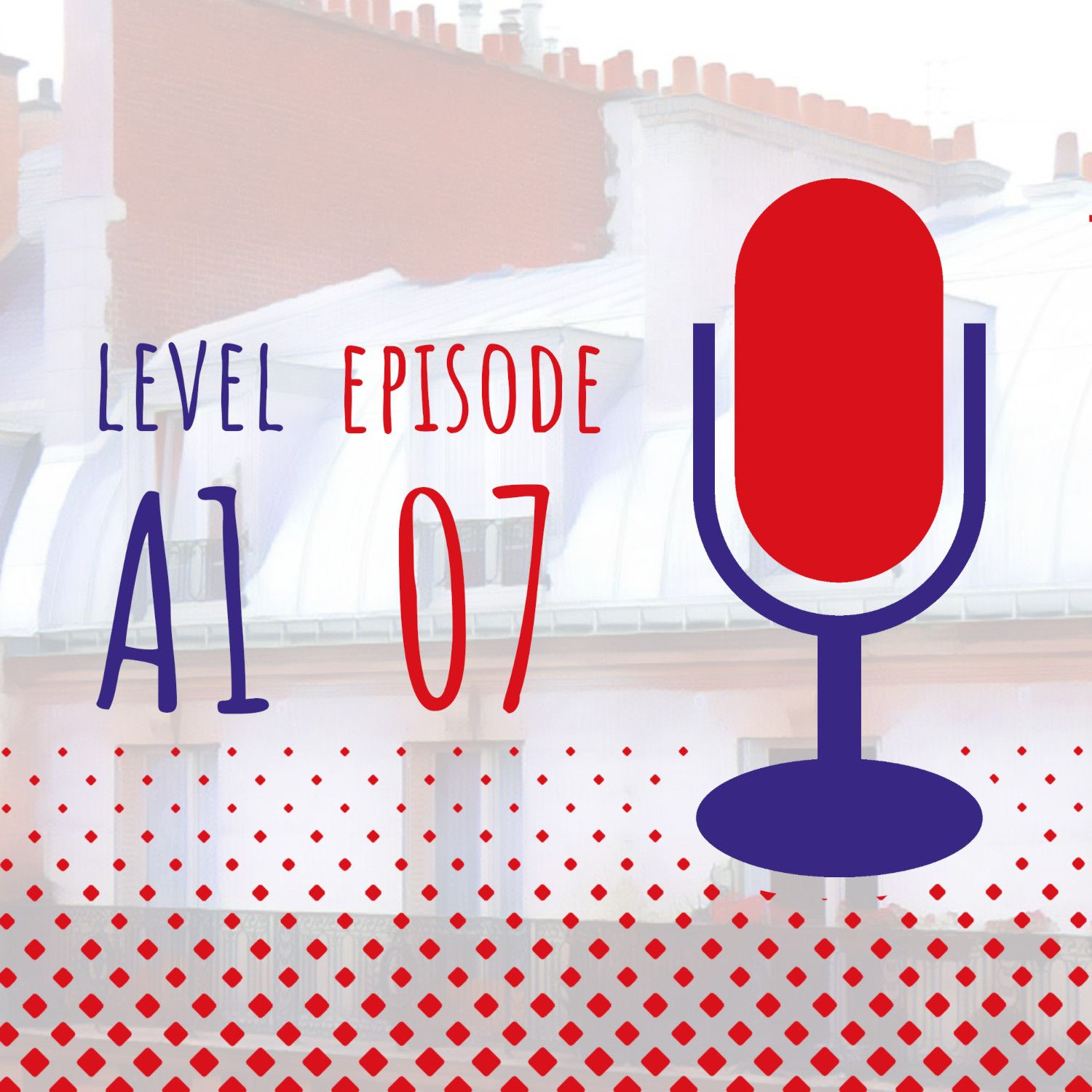
#21 (A1) Feng shui, couleurs et mobilier

Is this a priority for you?

How to Say More by Saying Less in a Job Interview
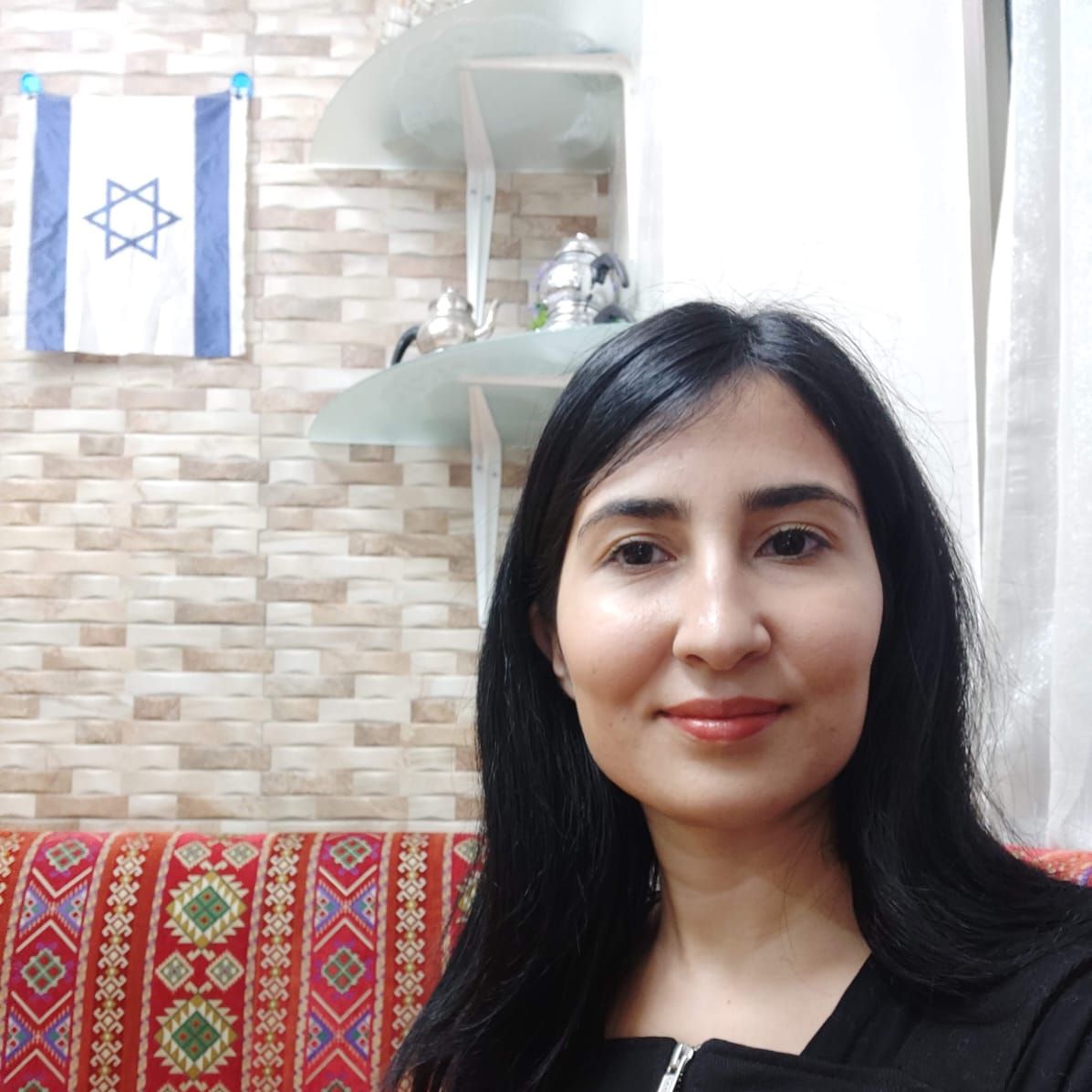
Merhaba חברים
ตอนยอดนิยม

アリー関西弁を学ぶ【 🇺🇸🇯🇵】Bilingual ENG&JP Chit-Chat:Aly Learns Kansai Dialect
【 🇺🇸🇯🇵】《#1-3🐥Is the Kansai Dialect special?》Bilingual ENG&JP Chit-Chat: Aly Learns Kansai Dialect

russian in context
Holidays (Greetings in russian) / Праздники - Kоротко и ясно!

[Intermediate-Upper level] Interesting Japanese Not Taught In Schools About Japanese business culture, Japanese habits & Osaka
「境界知能」は「低学歴」?専門医が「安易に境界知能と呼ばないで」と抗議するのはなぜか?

Rethinking Language Learning
Essentialism

Learn French with Anthony
#21 (A1) Feng shui, couleurs et mobilier

DAILY Business English VOCABULARY builder
Is this a priority for you?

Confident English Interview Podcast
How to Say More by Saying Less in a Job Interview

קלה מאיסטנבול
Merhaba חברים